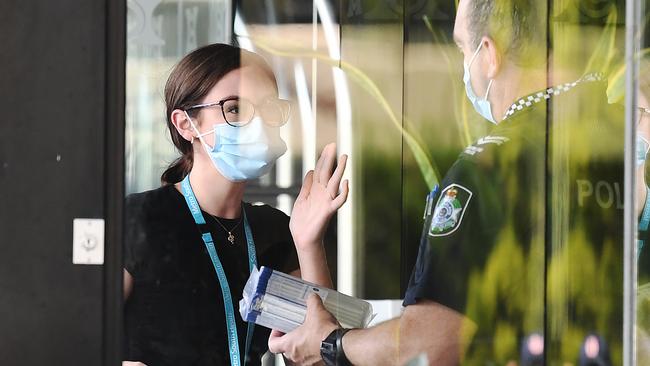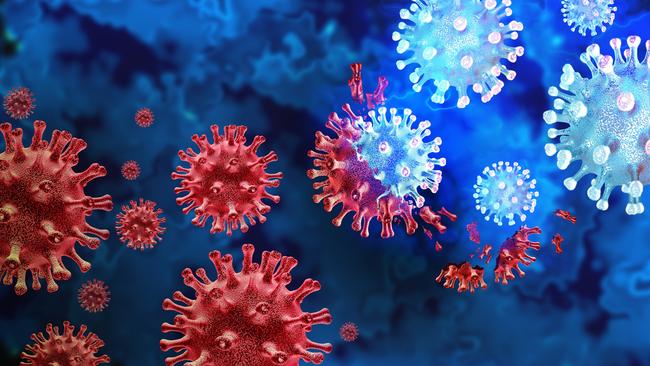New Covid-19 strain BA. 2.86 ‘most deadly’ since Omicron
Health officials are warning a new, highly mutated Covid-19 strain may be difficult to contain if it hits Aussie shores.

Illness
Don't miss out on the headlines from Illness. Followed categories will be added to My News.
It’s been described as the most deadly Covid strain since Omicron.
Health officials are warning a new, highly mutated version of the virus may be difficult to contain if it hits Australian shores.
BA. 2.86 was first detected in Denmark on July 25, and it has also been spotted in the US and Israel.
The mutation was identified in the UK on Friday in an individual with no recent travel history, the UK Health and Security Agency (UKHSA) said.

This means there could already be “significant community transmission” among Britons, the agency said.
But the UKHSA said there is “insufficient data” to assess how serious the strain might be, or how likely it is that current vaccines will protect against it.
The “high number of mutations” means that spike proteins, the membranes on the outside of the virus that allow it to enter and infect human cells, will change their shape.
“Having changed their shape, they may become more infectious, they may become more disease-causing,” Dr Bharat Pankhania, an infectious disease control expert, told Sky News.
“On the other hand, they may not. We just don’t know yet,” he said.
Immunologist Kristian Anderson wrote on Twitter it has all the “hallmark features of something that could take off, however, our immunity landscape is now complex, so it’s too early to say it will”.
He concluded by saying “I think it might”.
Experts believe most people have some level of “immune memory” which will allow their immune system to kick in and control the infection effectively.
The symptoms appear to be similar to those caused by previous strains, Thomas Russo, chief of the Division of Infectious Diseases at the University of Buffalo medical school, told the Sydney Morning Herald.

Common ones include a runny nose, headache, fatigue, a sore throat and sneezing.
People who are older, have compromised immune systems or suffer from multiple other conditions are at higher risk for more severe effects. These may include lower respiratory disease, chest pain and shortness of breath.
Over the last week, 736 cases of Covid were reported in Australia, an increase of 0.8 per cent from the previous week.
The highest number of cases were in NSW with 304 cases reported, an increase of 9.3 per cent, followed by Queensland with 144 cases reported, and Western Australia with 105 cases reported.
Huge Covid breakthrough
Earlier this year scientists made a huge medical breakthrough cracking why some people appear to dodge Covid-19 and others don’t.
The research, published in Nature, shows that a person who carries one copy of the protective HLA-B15 gene is twice as likely to remain asymptomatic, while someone who carries two copies of the gene is eight times more likely to show no symptoms.

The researchers found that of 1428 unvaccinated donors with positive test results for Covid-19, 136 had no symptoms.
A high proportion of these asymptomatic donors were carrying the HLA-B15 gene, which was the first evidence of a genetic link.
The killer T cells, which help our bodies fight infection, had a strong immune response to Covid-19 in people with the HLA-B15 gene.
These killer T cells also had the capacity to recognise Covid-19 and its different variants, including the current Omicron variants.
La Trobe University lead researcher Professor Stephanie Gras said the study of infected but asymptomatic people could “enable us to identify new ways of promoting protection … by mimicking this immune ‘shield’ observed in individuals that can dodge Covid-19”.
Originally published as New Covid-19 strain BA. 2.86 ‘most deadly’ since Omicron





